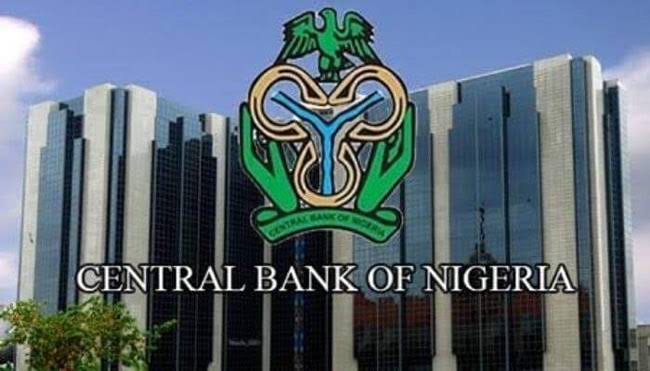Nigeria’s President, Bola Tinubu, has signed the Investments and Securities Act (ISA) 2025 into law, officially repealing the Investments and Securities Act No. 29 of 2007. This new legislation strengthens the legal framework for the country’s capital market, enhances investor protection, and introduces significant reforms aimed at promoting transparency, market integrity, and sustainable growth.
Strengthening Nigeria’s Capital Market
According to a statement released by the Securities and Exchange Commission (SEC) on Saturday, the ISA 2025reaffirms the SEC’s role as the principal regulatory authority overseeing Nigeria’s capital market. The Act introduces key provisions designed to align market operations with global best practices, ensuring a more robust and competitive investment landscape.
The statement reads:
“The Securities and Exchange Commission (SEC) is pleased to announce that President Bola Tinubu has assented to the Investments and Securities Act (ISA) 2025, which repeals the Investments and Securities Act No. 29 of 2007.”
A Milestone for Regulatory Advancement
Reacting to the development, Dr. Emomotimi Agama, Director-General of the SEC, described the signing of the Act as a landmark achievement for Nigeria’s capital market.
“The ISA 2025 reflects our commitment to building a dynamic, inclusive, and resilient capital market. By addressing regulatory gaps and introducing forward-thinking provisions, the new Act empowers the SEC to foster innovation, enhance investor protection, and position Nigeria as a top destination for both local and foreign investments.”
Dr. Agama expressed gratitude to stakeholders within and beyond the capital market community for their role in achieving this milestone, emphasizing the need for continued collaboration to ensure the Act’s successful implementation.
He also commended the National Assembly for its role in drafting and passing the legislation, highlighting the extensive deliberations and bipartisan support that underscored its importance in fostering economic growth and boosting investor confidence.
Key Provisions of the ISA 2025
The newly enacted ISA 2025 enhances the SEC’s regulatory powers, aligning them with global standards. These expanded powers ensure compliance with IOSCO’s Enhanced Multilateral Memorandum of Understanding (EMMoU), allowing the SEC to maintain its “Signatory A” status, further enhancing the credibility of Nigeria’s capital market.
Other major highlights of the Act include:
- Reclassification of Securities Exchanges: The Act differentiates between composite and non-compositeexchanges. A composite exchange facilitates the listing and trading of all categories of securities and products, while a non-composite exchange focuses on specific securities or products.
- Financial Market Infrastructure Enhancements: The Act introduces regulatory provisions for central counterparties, clearing houses, and trade depositories, ensuring a more structured financial ecosystem.
- Recognition of Digital Assets: The law explicitly classifies virtual/digital assets and investment contracts as securities, bringing Virtual Asset Service Providers (VASPs), Digital Asset Operators (DAOPs), and Digital Asset Exchanges under SEC regulation.
- Exemption from General Insolvency Laws: The Act protects transactions involving financial market infrastructures from the application of general insolvency laws, ensuring the stability of market operations.
- Systemic Risk Management: New provisions focus on monitoring, managing, and mitigating systemic risks within Nigeria’s capital market.
- Expansion of Issuers and Innovative Products: The Act broadens the range of eligible issuers, paving the way for innovative investment products, subject to SEC approval and regulatory controls.
- Commodity Exchange and Warehouse Receipt Regulation: A dedicated section of the Act establishes regulatory oversight for commodity exchanges and warehouse receipts, supporting the growth of Nigeria’s commodities sector.
- Improved Access to Capital for Sub-National Entities: The Act removes existing restrictions on state and local governments raising funds through the capital market, providing them with greater financial flexibility.
- Mandatory Use of Legal Entity Identifiers (LEIs): Capital market participants must now use LEIs in transactions, enhancing transparency in securities trading.
- Crackdown on Ponzi Schemes and Fraudulent Investments: The Act explicitly prohibits Ponzi schemes and fraudulent investment operations, imposing strict penalties and jail terms on promoters of such schemes.
- Tribunal Reforms: Several amendments improve the structure and operations of the Investment and Securities Tribunal, including changes to its composition, appointment criteria, and jurisdiction to ensure efficiency in dispute resolution.
A Step Towards Market Stability and Economic Growth
The Investments and Securities Act 2025 is expected to bolster investor confidence, create a more stable regulatory environment, and attract both domestic and foreign investments into Nigeria’s capital market.
With these progressive reforms, Nigeria takes a significant step forward in modernizing its financial markets, reinforcing transparency, and fostering sustainable economic growth.








Leave a Reply